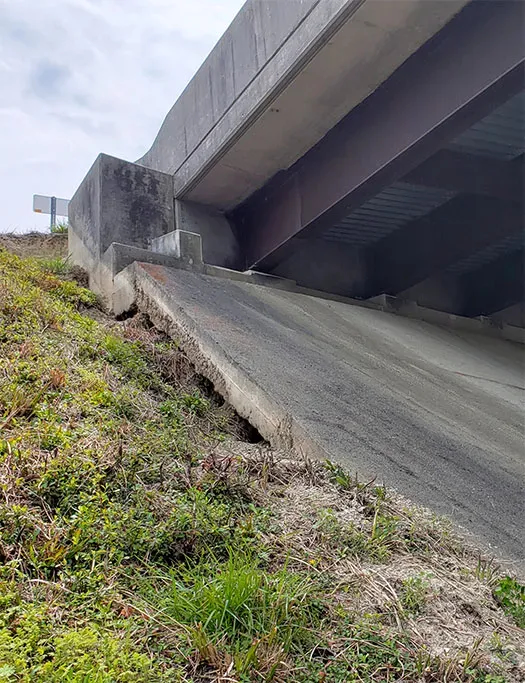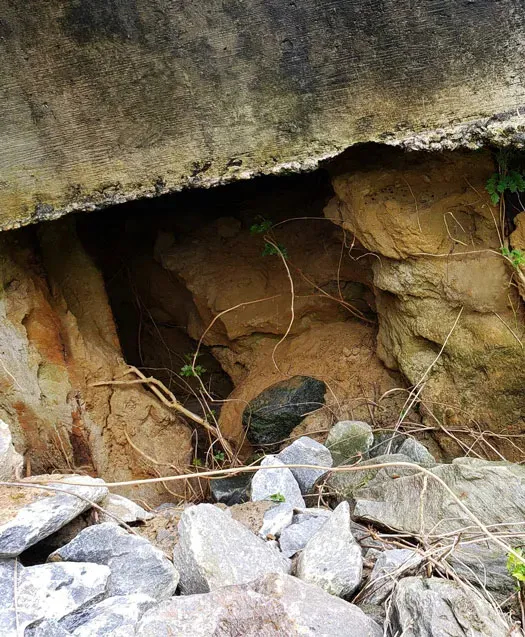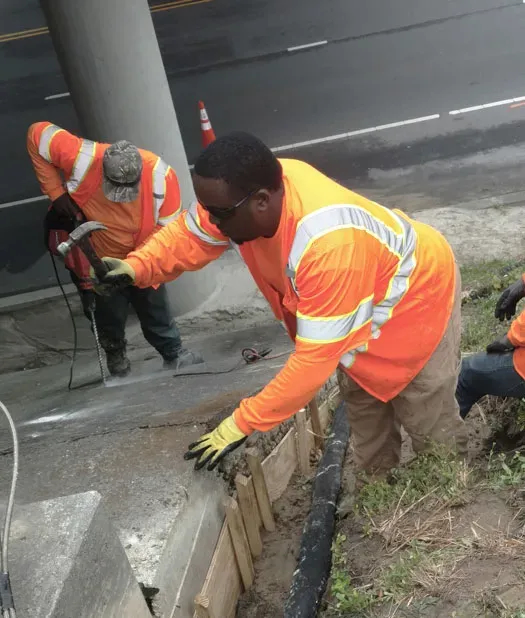On-Call Statewide Bridge Maintenance and Repair in North Carolina
Problem
In North Carolina, excessive rain, seasonal storms, and flooding regularly weaken soils supporting bridge approaches, departures, and slopes. In many cases the supporting soils wash away under the bridge ramps and slopes, creating voids and deposits of sediment below the bridge. In some extreme cases, the soils collect on the roadway surface below the bridge. For NCDOT officials, keeping up with the maintenance issues caused by erosion at all the interstate and secondary road bridges in the state calls for creative thinking and a trusted contractor. NCDOT relies on URETEK.
Analysis
As part of an on-call agreement, individual bridge locations are identified by NCDOT for URETEK to inspect. Once the calls come in, URETEK crews arrive on site to perform inspections and Dynamic Cone Penetrometer (DCP) testing to confirm and locate weak soils and void spaces under the bridge approach and departure slabs, as well as in proximity to affected bridge slopes. For almost every situation involving weak soils underneath key bridge structures, the job involves a targeted application of URETEK Deep Injection® (UDI).
Solution
For bridge approach and departure ramps that have been subjected to erosion following high water events, UDI is ideal for stabilizing the structures and preventing future settlement issues at the site. Where needed, URETEK crews have used UDI to gently raise settled bridge approach and departure ramps and transitions back to their original designed grade. For each job, a site-specific injection plan is formulated based on a visual inspection and the results of DCP testing to verify the locations of especially weak soils and voids. With most work performed during off-peak traffic times, UDI involves very little disruption to drivers.
Result
As a trusted contractor to NCDOT, URETEK is able to rapidly respond to bridge locations all across the state whenever needed. URETEK crews have successfully stabilized multiple bridge approach and departure ramps, filled voids, and prevented future settlement and erosion issues at each site. As a matter of routine practice, all work is completed with minimal lane closures and disruption to traffic.
URETEK Deep Injection® (UDI)
Widely referenced throughout our industry, UDI involves the injection of structural polymer into base and subgrade soils to increase the load bearing capacity. This is achieved by injecting the polymer through small holes drilled directly through the pavement structure to depths determined by site-specific analysis. Our URETEK 486 Star® material flows easily into voids and weak zones within the soil mass below. Through a controlled chemical reaction, the expanding polymer compacts surrounding soils and applies a controlled pressure on targeted areas of the affected pavement above. If needed, a multi-injection design plan is utilized to gently return the pavement to its original grade. The composite material quickly cures into a strong, dimensionally stable, and water-resistant geo-material, providing years of reliable service.
URETEK 486 Star®
URETEK 486 Star® polymer is a two-component, high-density, expanding thermoset polyurethane system. It was developed to be the ideal solution for under-sealing, void filling, lifting of settled pavement, stabilization and stiffening of weak soils, and for encapsulating and sealing buried infrastructure. URETEK 486 Star® is environmentally inert, non-toxic, and resists underground water erosion or weakening due to its industry-leading hydrophobic properties.


